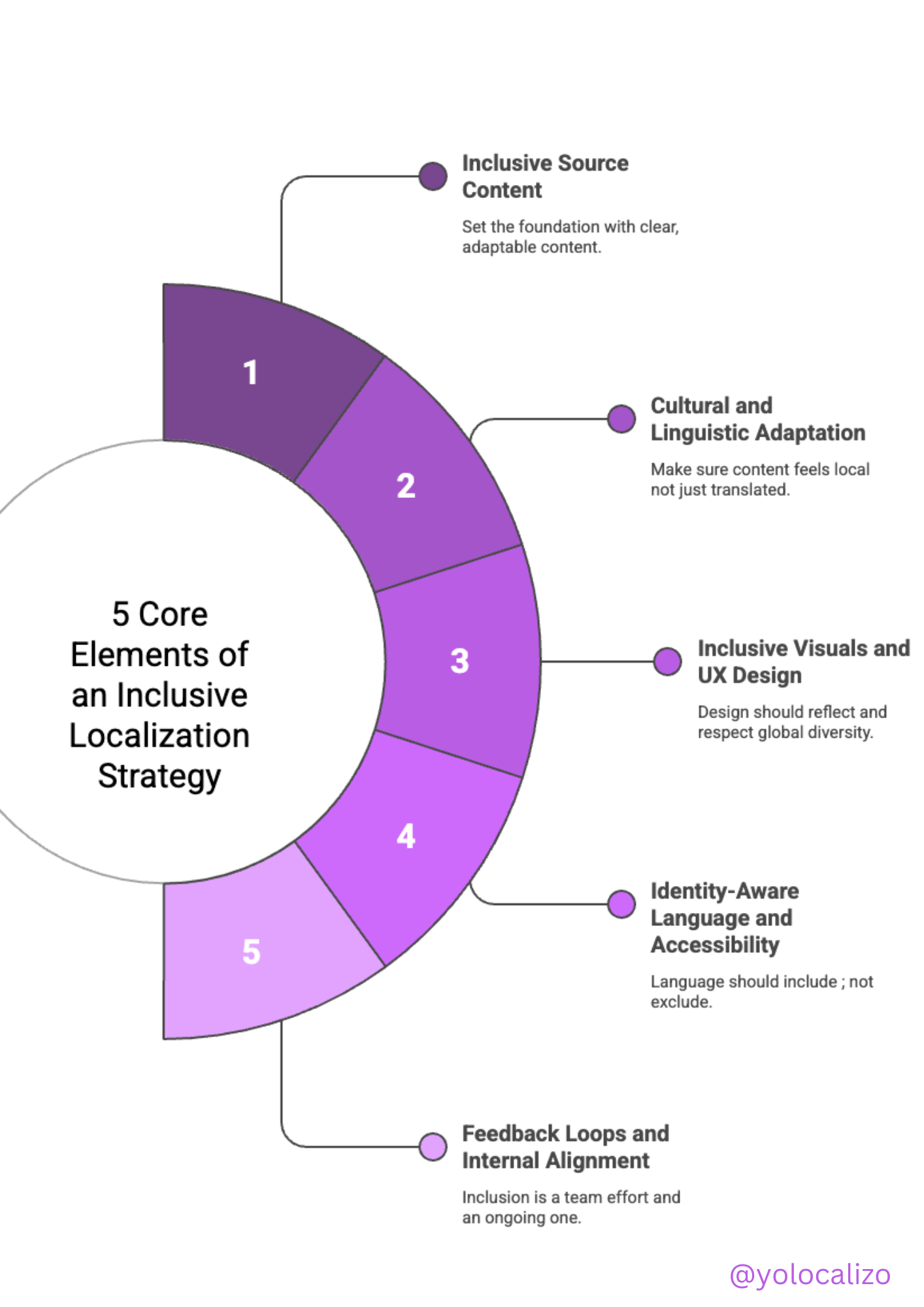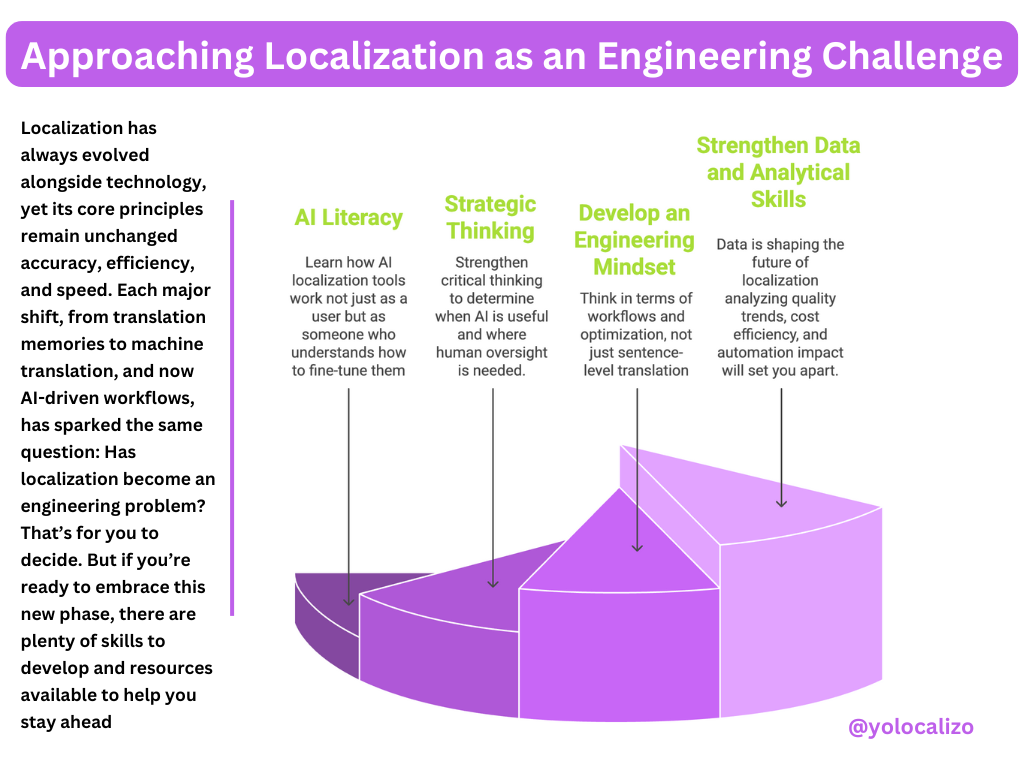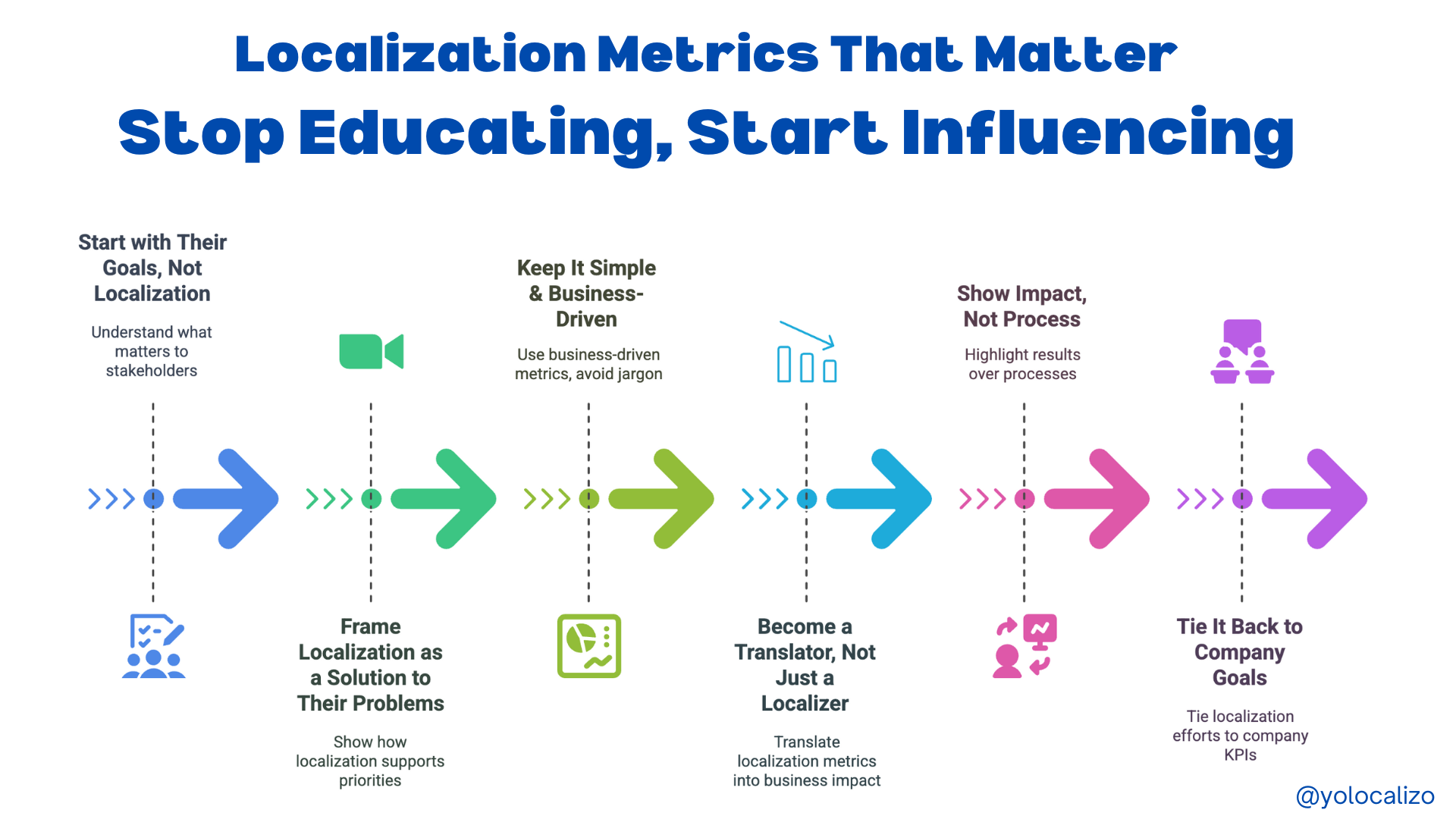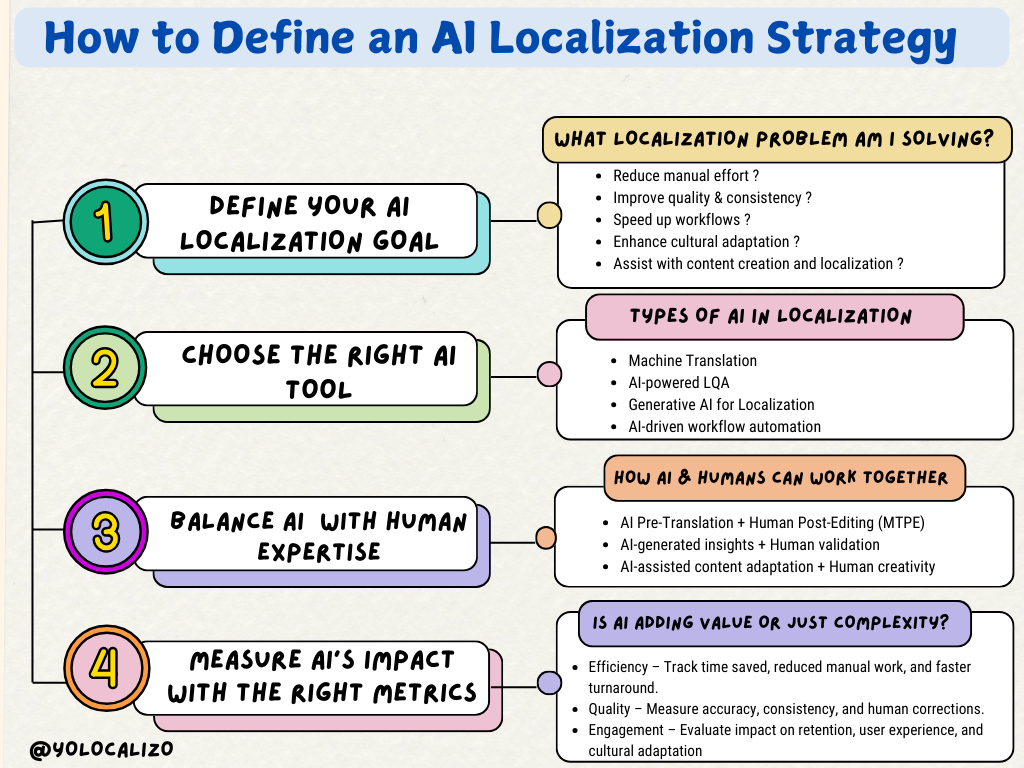From Individual Contributor to Localization Team Leader: what should be considered?
The truth is that when I was a team leader, I was by chance. Today, people are more prepared. The concept of a career plan is more widespread, and there are even personal development plans designed to help us progress in our jobs. But for me, the first time I had to lead a team, it was simply because I was a good Individual Contributor (IC).
I had a decent knowledge of localization quality assurance. I was good at talking to clients and internal stakeholders at the project manager level. So there was what they call in the management world the halo effect. Since I was a good individual contributor, I was supposed to be a good Manager, erh! I wish!
My transition was complicated and bumpy along the way.
Was I ready to be a team leader? No.
Did I know the difference between IC and a Localization Team Manager? No.
Did I know the benefits and challenges of transitioning from an individual contributor to a management role? No.
Did I know how to measure the success of a Localization team leader? You guess right, No.
There were many things I didn't know, and seeing now in perspective, it is almost a miracle that I made it through!
In the end, as with many other aspects of life, our capacity to adapt is greater than we may initially think.
With the right mindset, being surrounded by skilled Localization professionals, and having a supportive manager who is patient and willing to help us grow, the transition to a Localization manager can ultimately be successful.
This week, I want to discuss what we should consider when transitioning from an IC role to a Localization Manager role. First, it's important to understand the differences between the two positions.
When I first made the transition, I didn't fully understand the differences, but now that I have more experience, I want to share my learnings with others.
Click HERE to download the infographics
Understanding the Differences between Individual Contributors and Managers
Responsibilities: An individual contributor typically focuses on completing specific tasks or Localization projects. In contrast, a Localization manager is responsible for leading and directing the Localization team members. So while the Localization Managers are accountable for setting goals and allocating Localization professionals, the ICs are actually the ones delivering those goals.
Skills: Individual contributors often have specific technical or Localization matter expertise. For example, I remember back in my days as an IC, I was able to code a script to assist in running LQA activities. Also, I was proficient in creating macros, managing databases, and exporting data. Localization Managers' skills will be quite different, not skills related to hands-on or knowledge of specific tools; a Localization Manager will own and develop more people management skills such as public speaking (Hello Toastmasters!), problem-solving, how to give feedback, or how to manage conflicts efficiently.
Mindset: It's also an area where both roles vary tremendously from one to the other. An individual contributor may focus on their own work and goals, focusing on a specific project, while a Localization Manager needs to think about the broader goals of the organization and how to connect Localization goals with the company goals.
Strategic thinking. Also, a Localization Manager is expected to think strategically and anticipate future needs.
Stakeholder management is another area with significant differences as Localization Managers have to interact with a wide range of people, including team members, other managers, and internal/ external stakeholders. We need to be able to communicate the Localization value proposition effectively, and we have to build relationships so Localization activities are not considered an afterthought. Individual contributors typically have fewer interactions and may not need to develop the same level of interpersonal skills (although, as I see it, building these skills always comes in handy, no matter what role you play, but well, I think that topic deserves a separate post :)
Transitioning from an IC to a Localization Manager role: Benefits and Challenges
Benefits
If you like to have increased responsibility and a broader impact, that will be easier to achieve in the Localization Manager role. As a manager, we will have more control over the direction of the Localization team and we will be able to make decisions that will have a significant impact on the success of the Localization team or organization.
Increased influence: Localization Managers often have more influence than individual contributors because they are more exposed to higher levels of an organization. As I explained in the previous paragraph, stakeholder management is one of the main differences between an IC, and a Localization Manager will be continuity pitching ideas to increase the visibility of the team, therefore in the end, they are in a better position to persuade senior leaders in the org. They can shape the team's direction, and their opinions and ideas are often given more weight.
Increased earning potential: Although earning more money should not be one of the main reasons to want to be a Localization Manager, we cannot overlook that in most situations, the earning potential being a Localization Manager is higher than being an individual contributor
Greater autonomy: As a Localization manager, you will have more control over how your team operates and the decisions that are made. This can be very empowering and can give you a sense of ownership over your work.
Opportunities to mentor and develop others: One thing that gives me the most pleasure and satisfaction is that, as a team leader, I have the opportunity to mentor and develop my team members. This can be extremely rewarding; seeing someone grow in their role while you mentor them over time is very nice to see.
But as Peter Parker's uncle said in Spiderman, "with great power comes great responsibility," so it's not all plain sailing when transitioning from IC to Localization Manager. There are several important challenges to consider.
Challenges
People skills. Personally, I think learning people skills (I don't like to call them soft skills) is more difficult to learn than tech skills. I find it more challenging to learn how to deal with the complexities of leading a team or how to be a persuasive communicator than learning how to use one tool. I think, in a way, tech is predictable, while we, as human beings, are random people with often weird behaviors and reactions.
Balancing competing priorities is another tricky area. Although nowadays, every employee is indeed dealing with multiple tasks and responsibilities during a week; I do think a Localization Manager is balancing competing priorities more complexly, such as managing Localization budgets, recruitment, and ensuring that the team is working effectively.
Dealing with added stress: those competing priorities mentioned in the above bullet mean that Localization Managers often have more pressure and higher expectations than individual Localization contributors. They may have to deal with difficult stakeholders/direct reports, unrealistic expectations, tricky deadlines, and overall competing priorities that can cause added stress.
Learning to let go was extremely difficult for me: As a Localization manager, I found it challenging to let go of the tasks I was doing very well as an IC. It's soooo tempting to get involved in the details of your team members' work and solve their problems. It feels good to solve problems! and if you know how to solve it because you were good at it and we know how to do it, why not help!? But the reality is that it's important to learn how to delegate effectively and trust your team members to do their jobs. That's the only way they'll grow
Preparing for the transition:
If I haven't discouraged you in the previous paragraphs with the list of challenges and skills we must consider when transitioning from IC to Localization Manager, and if you still want to transition, let's see how to prepare for the transition!
This is what I wish I had known years ago. Here are some ideas so that the same doesn't happen to you as it did to me:
Developing leadership skills: As I mentioned above, skills for IC and Localization Managers are very different, so to avoid learning by trial and error, it's a good idea to prepare for the management role by polishing skills such as how to lead, how to motivate or how to delegate tasks effectively.
Networking with managers: Networking with other managers can be a great way to learn about the role and the skills required to succeed. We will learn about different management styles and approaches and then imitate the one that resonates the most with us.
Gaining experience in leadership roles can help us develop the skills we need as managers. This could include taking on additional responsibilities within our current role or volunteering for leadership roles in our community or professional organizations.
Building your Localization tribe and investing time to understand the Localization industry trends. Building a strong professional network can be incredibly valuable when transitioning to a management role. Keeping updated with the industry trends, learning from other managers in the Localization industry, and reflecting on best practices can help us be prepared when the moment to transition arrives.
Developing coaching, mentoring, emotional intelligence, and empathy skills. As a Localization manager, we will be expected to coach and mentor our future Localization team members. Developing these skills before making the transition can help us be more effective in our role as a manager when the time comes.
Measuring Success:
We arrived at the most difficult area for me to understand during my transition. When I transitioned from IC to Localization Manager, I didn't clearly understand how to measure success.
How is the success of a Localization Manager measured?
I believe it is more quantifiable and easy to justify when you are an IC. For example, when I was an LQA tester, the quality of my bug reports, project updates, and QA scripts served as a compass to justify my impact, but when you are a manager, how is this measured?
Here are some ideas:
The team's performance is one of the most critical measures of success for a Localization Manager. So, be prepared to have productivity, quality, and stakeholder satisfaction metrics.
Team Engagement: Team engagement is an essential indicator of the overall health of Localization. I like Officevibe; this is an excellent tool to try in case you need a recommendation.
Personal Growth and Development: I can't remember where I read that a manager's main job is to develop future managers. I couldn't agree more. As a Localization Manager, it's very important to measure not only your own personal growth and development but also the development and growth of your team.
Financial Performance is another important metric for Localization Managers to measure how well we do our job. Our ability to create forecasts and anticipate unexpected Localization expenses indicates success in measuring our financial management skills.
Employee Retention. Are our people leaving? Sometimes it may not be due to our management, and maybe something more conjunctive with the company or the situation of the sector in which it operates... but it may also be because of us and how we manage the team. Employee retention is a metric that can indicate how effectively we are leading our Localization team and how satisfied our team members are with our work as a Localization leader.
Innovation is another important metric to measure when transitioning to a management role. This can include counting the number of new ideas generated by team members, the number of ideas implemented, and the impact of these ideas on the organization.
In conclusion
Are you ready to take your career to the next level? As an IC, we can hone our skills and become experts in our Localization niche; however, if you are attracted to leading and developing individuals, you might start considering your next move. While the roles and skills required for each position may differ, as I explained in this article, the transition may be challenging, but with the right mindset, training, and support, it can be a truly rewarding experience. Are you ready to take the leap?













Localizability has always been a challenge small issues in source content often lead to big problems later in translation. In this post, I explore how AI is giving localization teams a powerful new way to improve source quality, reduce friction, and create better content for every market right from the start.